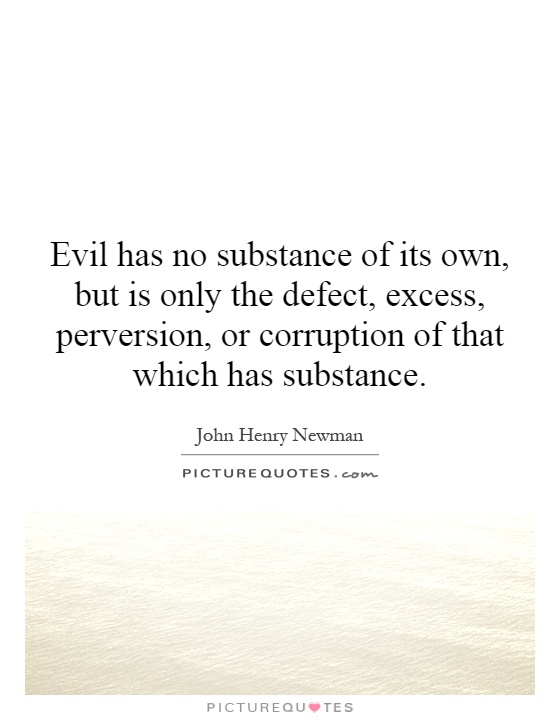Evil has no substance of its own, but is only the defect, excess, perversion, or corruption of that which has substance

Evil has no substance of its own, but is only the defect, excess, perversion, or corruption of that which has substance
John Henry Newman, a prominent figure in the 19th-century religious landscape, was a theologian, poet, and cardinal in the Roman Catholic Church. His writings and teachings often delved into the nature of evil and its relationship to the human condition. One of his most famous quotes, "Evil has no substance of its own, but is only the defect, excess, perversion, or corruption of that which has substance," encapsulates his nuanced understanding of the concept of evil.Newman believed that evil was not a tangible entity in and of itself, but rather a distortion or corruption of something that was originally good. In his view, evil was a perversion of the natural order, a deviation from the intended purpose of creation. This perspective is deeply rooted in his Christian faith, which teaches that God created the world and everything in it as inherently good.
According to Newman, evil arises when human beings misuse their free will and turn away from God's intended plan for them. This can manifest in various forms, such as greed, hatred, violence, and injustice. These are not inherent qualities of human nature, but rather distortions of the goodness that God originally intended for his creation.
Newman's understanding of evil as a corruption of the good has profound implications for how we view and respond to the presence of evil in the world. Instead of seeing evil as an all-powerful force that exists independently of God, Newman's perspective reminds us that evil is ultimately a perversion of the divine order. This can offer hope and comfort to those who are struggling with the presence of evil in their lives, as it suggests that evil is not the final word and that goodness and light will ultimately prevail.












 Friendship Quotes
Friendship Quotes Love Quotes
Love Quotes Life Quotes
Life Quotes Funny Quotes
Funny Quotes Motivational Quotes
Motivational Quotes Inspirational Quotes
Inspirational Quotes